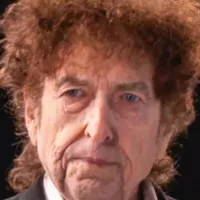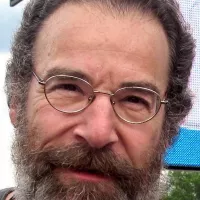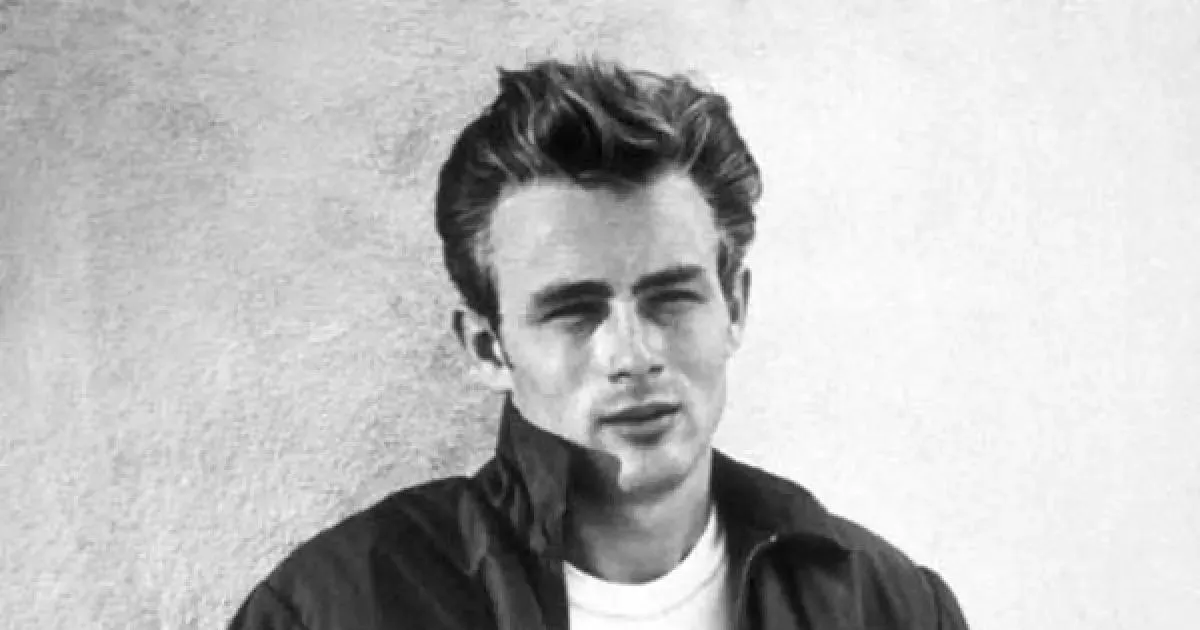James Dean was an American actor whose short-lived career had a major impact on popular culture. He was known for playing rebellious, misunderstood young men, reflecting the anxieties of the post-World War II generation. His most famous roles include "East of Eden," "Rebel Without a Cause," and "Giant," all of which showcased his talent for portraying emotional turmoil and youthful angst.
1902: Publication of "The Immoralist"
André Gide's book "The Immoralist", which was later adapted into a play starring James Dean, was published in 1902.
1929: Jeanne Eagels Receives Posthumous Oscar Nomination
Jeanne Eagels was nominated for Best Actress posthumously in 1929, though the rules for selecting the winner were different at the time.
February 8, 1931: Birth of James Dean
James Byron Dean was born on February 8, 1931 in Marion, Indiana.
1938: Death of James Dean's Mother
James Dean's mother, Mildred Marie Wilson, tragically passed away from uterine cancer in 1938.
May 1949: Graduation and Move to California
James Dean graduated from Fairmount High School in May 1949 and moved back to California to pursue acting.
1950: N/A
N/A
January 1951: Dedication to Acting
James Dean dropped out of UCLA in January 1951 to fully dedicate his time to his acting career.
July 1951: Appearance in "Alias Jane Doe"
James Dean appeared in the television show "Alias Jane Doe" in July 1951.
October 1951: Move to New York City
James Dean moved to New York City in October 1951 to further pursue his acting career.
1951: Early Acting Career
James Dean began his acting career with uncredited roles in 1951.
1952: Beginning of Relationship with Liz Sheridan
James Dean and Liz Sheridan began their romantic relationship in New York in 1952. Sheridan described it as their first love.
1952: Nonspeaking Role in "Deadline - U.S.A."
James Dean had a nonspeaking role in the film "Deadline - U.S.A." starring Humphrey Bogart in 1952.
1952: Joining the Actors Studio
James Dean joined the Actors Studio in 1952 to study method acting under Lee Strasberg.
1952: Minor Film Roles
James Dean secured small roles in films like "Sailor Beware" and "Has Anybody Seen My Gal?" in 1952.
1952: Publication of "East of Eden"
John Steinbeck's novel, "East of Eden," was published in 1952. The book delves into the complex history of the Trask and Hamilton families.
1953: Elia Kazan Searches for Lead Actor for "East of Eden"
In 1953, director Elia Kazan began casting for the film adaptation of John Steinbeck's novel "East of Eden." The story explored the Trask and Hamilton families over generations, focusing on their lives in Salinas Valley, California.
1953: Appearance in "Glory in the Flower"
James Dean appeared in the CBS series "Omnibus" episode "Glory in the Flower" in the summer of 1953.
1953: Continued Acting Career
James Dean continued taking uncredited roles until 1953.
April 8, 1954: James Dean Relocates to Los Angeles for "East of Eden"
On April 8, 1954, James Dean left New York City for Los Angeles to begin filming "East of Eden" after being cast as Cal Trask.
October 1954: Pier Angeli Announces Engagement
After finishing "East of Eden," James Dean briefly returned to New York in October 1954. During that time, Pier Angeli unexpectedly announced her engagement to singer Vic Damone, surprising the press and upsetting Dean.
December 12, 1954: Original Broadcast of "The Dark, Dark Hours"
The "General Electric Theater" episode "The Dark, Dark Hours," featuring James Dean, was initially broadcast on December 12, 1954.
1954: Interest in Motorsport and Purchase of Vehicles
In 1954, James Dean developed a keen interest in motorsports and purchased a Triumph Tiger T110 and a Porsche 356.
1954: Meeting Pier Angeli
James Dean met Italian actress Pier Angeli in 1954 while she was filming "The Silver Chalice." Their romance was highly publicized, and they exchanged jewelry as tokens of their affection.
1954: Theatrical Role in "The Immoralist"
James Dean received positive reviews for his role as Bachir in the theatrical adaptation of André Gide's book "The Immoralist" in 1954.
May 30, 1955: Final Race and Temporary Halt to Racing Career
On May 30, 1955, James Dean's final race took place in Santa Barbara, ending prematurely due to a blown piston. Warner Bros. then barred him from racing during the production of "Giant."
September 30, 1955: Death of James Dean
James Dean tragically died in a car crash on September 30, 1955.
October 8, 1955: Funeral of James Dean
On October 8, 1955, James Dean's funeral was held in Fairmount, Indiana, attended by hundreds of mourners, with thousands gathered outside.
1955: Release of "Rebel Without a Cause"
"Rebel Without a Cause," starring James Dean as Jim Stark, was released in 1955 and became very popular, capturing the essence of teenage angst.
1955: Purchase of Porsche 550 Spyder and Speeding Ticket
In 1955, James Dean acquired a Porsche 550 Spyder and, on September 30th, received a speeding ticket while driving to the Salinas Road Race with mechanic Rolf Wütherich.
1955: Posthumous Oscar Nominations
In 1955, James Dean became the only actor to receive two posthumous Academy Award acting nominations for his roles in "East of Eden" and "Giant".
1955: First Professional Race and Continued Racing
In 1955, James Dean participated in his first professional race at the Palm Springs Road Races, securing first place in the novice class and second place overall. He continued racing in Bakersfield, achieving further success.
1956: Release of "Giant"
"Giant," James Dean's last film, was released posthumously in 1956. Dean portrayed Jett Rink, a Texan ranch hand who becomes wealthy after striking oil.
1956: Elvis Presley Interview and Observations on Rebel Image
In a 1956 interview, Elvis Presley discussed the rebel image projected by James Dean and Marlon Brando, and how it resonated with young audiences, particularly girls.
1956: Posthumous Oscar Nomination for "East of Eden"
James Dean received a posthumous Academy Award nomination for Best Actor for his role in "East of Eden" in 1956. This marked the first official posthumous acting nomination in the Academy Awards history.
1956: Starring Alongside Carroll Baker in "Giant"
James Dean starred alongside his classmate and friend Carroll Baker in the film "Giant" (1956).
1956: Release of "Somebody Up There Likes Me"
Originally slated to star as Rocky Graziano, James Dean's death halted his involvement in the film "Somebody Up There Likes Me." Paul Newman played Graziano, and the film achieved both critical and commercial success in 1956, earning two Oscars.
1957: Second Posthumous Oscar Nomination for "Giant"
James Dean received his second posthumous Best Actor Academy Award nomination for his role in "Giant" in 1957.
1963: Bob Dylan Channels James Dean on Album Cover
Bob Dylan, then a folk musician, intentionally mirrored James Dean's iconic look on the cover of his 1963 album, "The Freewheelin' Bob Dylan," aiming to project a "James Dean with a guitar" persona, as described by Dylan's biographer.
1965: Dylan's Continued Homage to Dean
Bob Dylan continued to evoke James Dean's image on the cover of his 1965 album, "Highway 61 Revisited," further solidifying Dean's influence on his public persona.
1971: Death of Pier Angeli
Pier Angeli passed away in 1971 at the age of 39 from a barbiturate overdose. Friends revealed that Angeli considered James Dean the love of her life.
1974: The Eagles' Tribute to James Dean
The Eagles released their song "James Dean" in 1974, marking a significant instance of Dean's lasting impact on rock music.
1977: Release of "September 30, 1955" Film
The film "September 30, 1955," which explores the reactions to James Dean's death in a small Southern town, was released in 1977.
November 1982: Release of "Come Back to the Five and Dime, Jimmy Dean, Jimmy Dean" Film
Robert Altman's film adaptation of the play "Come Back to the Five and Dime, Jimmy Dean, Jimmy Dean" was released in November 1982.
1986: Sam Shepard's Play About Bob Dylan and James Dean's Influence
In 1986, playwright and actor Sam Shepard interviewed Bob Dylan, crafting a play based on their conversation. The play explored how James Dean significantly influenced Dylan's early life and music.
1989: Goo Goo Dolls' "James Dean" Released
Adding to the collection of rock anthems inspired by the cultural icon, the Goo Goo Dolls released their song "James Dean" in 1989.
1992: Joe Hyams Publishes James Dean Biography
Joe Hyams' biography, "James Dean: Little Boy Lost," was published in 1992. The book shared details about Dean's life and relationships, including an alleged encounter with a then-married Pier Angeli.
1994: Publication of "Boulevard of Broken Dreams"
Paul Alexander's book, "Boulevard of Broken Dreams: The Life, Times, and Legend of James Dean," was published in 1994.
1994: Closure of Cholame Post Office
The Cholame post office, located near the site of James Dean's accident, closed in 1994.
1996: Liz Sheridan Discusses Relationship with James Dean
Actress Liz Sheridan revealed her relationship with James Dean in 1996, describing their time together in New York in 1952 as "magical."
1999: AFI Recognition
In 1999, the American Film Institute ranked James Dean as the 18th best male movie star of Golden Age Hollywood.
2000: Elizabeth Taylor's Comments on James Dean at GLAAD Media Awards
During the GLAAD Media Awards in 2000, Elizabeth Taylor, a close friend of Dean, publicly referred to him, along with Montgomery Clift and Rock Hudson, as gay. In a subsequent interview, she elaborated that Dean hadn't defined his sexuality and was still exploring at the time of his death.
2000: Publication of "Dizzy & Jimmy: My Life with James Dean; A Love Story"
Liz Sheridan published her memoir, "Dizzy & Jimmy: My Life with James Dean; A Love Story," in 2000, detailing her relationship with the late actor.
2005: Footage Featured in Documentary
Footage from "The Dark, Dark Hours" was featured in the 2005 documentary "James Dean: Forever Young."
2006: William Bast's Revelation about Relationship with James Dean
William Bast, a close friend and roommate of James Dean's, revealed in 2006 that they had a romantic relationship while staying at a hotel in Borrego Springs. This information was shared in Bast's book "Surviving James Dean."
April 20, 2010: Discovery of Lost "General Electric Theater" Episode
On April 20, 2010, a lost episode of "General Electric Theater" featuring James Dean and Ronald Reagan was discovered, garnering international media attention.
2011: Allegations of Abuse Surface
In 2011, reports emerged alleging that James Dean had confided in Elizabeth Taylor about experiencing sexual abuse by a minister.
2011: Auction of James Dean and Barbara Glenn's Love Letters
Love letters exchanged between James Dean and actress Barbara Glenn, whom he dated for two years, were auctioned off for $36,000 in 2011.
2012: Lana Del Rey References Dean in "Blue Jeans"
Lana Del Rey's 2012 song "Blue Jeans" referenced James Dean, demonstrating his enduring influence on contemporary artists across different music genres.
2014: Taylor Swift's "Style" Inspired by Dean
Taylor Swift's hit song "Style," released in 2014, drew inspiration from James Dean, further showcasing his timeless appeal and influence on pop culture.
2015: Adam Lambert's "Ghost Town" References Dean
Adam Lambert's 2015 song "Ghost Town" included references to James Dean, underscoring Dean's lasting presence in popular music across generations.
2016: The Weeknd's "Ordinary Life" References Dean
In 2016, The Weeknd released "Ordinary Life," a song that mentioned James Dean, highlighting his continued relevance as a cultural touchstone in contemporary music.
2022: Closure of Restaurant near James Dean Accident Site
In 2022, the restaurant situated near the James Dean accident site closed its doors.
Mentioned in this timeline

Pepsi is a cola-flavored carbonated soft drink and the flagship...

Taylor Swift is an American singer-songwriter recognized for her significant...

Lana Del Rey born Elizabeth Woolridge Grant is a celebrated...

Abel Makkonen Tesfaye known as The Weeknd is a Canadian...

Bob Dylan is a highly influential American singer-songwriter renowned as...
CBS Broadcasting Inc CBS is a prominent American commercial broadcast...
Trending

9 months ago Will Forte reflects on SNL, Alan Alda & Tina Fey reunite for Four Seasons.

Jeremiah O'Connell is a renowned American actor celebrated for his diverse roles in film and television His career spans from...

The Miracle on Ice was an unexpected victory by the United States men's ice hockey team over the heavily favored...
8 months ago Chiefs Dominate 2025 NFL Schedule with Seven Prime-Time Games

Mandel Mandy Bruce Patinkin is a versatile American actor and singer recognized for his work in musical theatre television and...

8 months ago Trump's White House Rose Garden Paving Sparks Controversy After Melania's Redesign; Bulldozing Begins.
Popular

Thomas Douglas Homan is an American law enforcement officer who...

William Franklin Graham III commonly known as Franklin Graham is...

XXXTentacion born Jahseh Dwayne Ricardo Onfroy was a controversial yet...

Jupiter is the fifth and largest planet from the Sun...

Instagram is a photo and video-sharing social networking service owned...

KFC or Kentucky Fried Chicken is an American fast-food chain...
